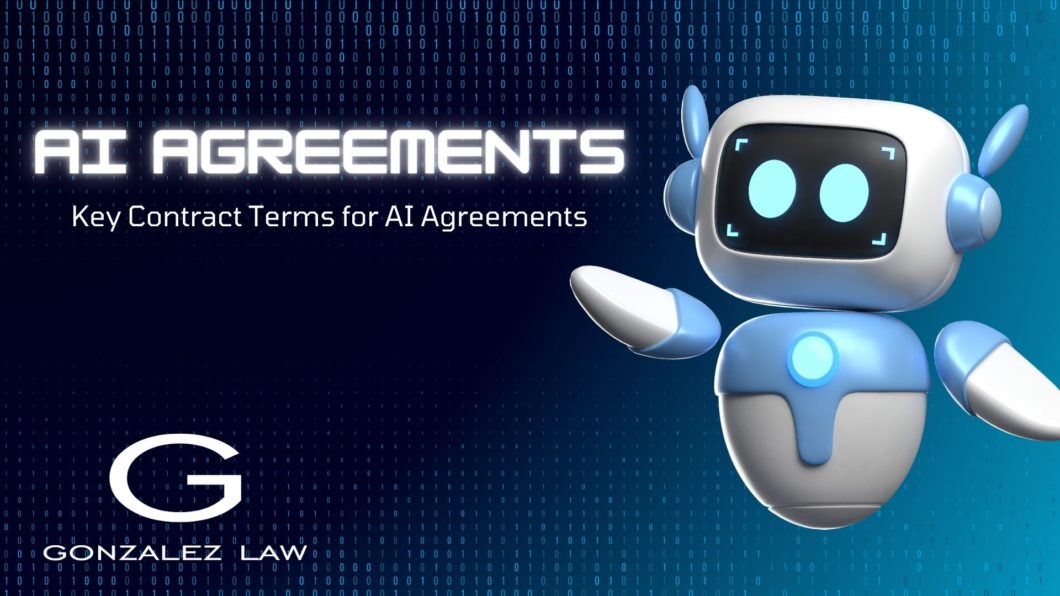
Key Contract Terms for AI Agreements
As artificial intelligence (AI) continues to revolutionize industries, businesses must ensure their AI-related contracts address key legal and operational considerations. Whether you’re licensing AI technology, procuring AI-powered services, or developing AI systems, here are essential contract terms to include:
1. Intellectual Property (IP) Ownership & Licensing
AI contracts must clearly define ownership rights over the AI system, data inputs, and outputs. Considerations include:
- Who owns the AI-generated content?
- Does the provider retain rights to improvements based on user data?
- Are there any licensing restrictions on third-party use?
2. Data Rights & Usage
Data is the lifeblood of AI, making it crucial to specify:
- Who owns the training data and resulting models?
- What data privacy and security obligations apply?
- Are there restrictions on using client data to improve AI models?
3. Confidentiality & Trade Secrets
AI contracts should include strong confidentiality clauses to protect proprietary algorithms, datasets, and methodologies. Consider:
- What constitutes confidential information?
- How long does confidentiality extend post-termination?
4. Performance Standards & Liability
AI performance can vary, making it essential to establish clear benchmarks:
- What level of accuracy, reliability, and uptime is guaranteed?
- What happens if the AI system fails or produces errors?
- Are there disclaimers on liability for AI-generated decisions?
5. Compliance with Laws & Ethical AI Principles
AI applications must comply with evolving legal and regulatory standards, such as:
- Data protection laws (e.g., GDPR, CCPA)
- Anti-discrimination and bias mitigation requirements
- Industry-specific regulations (e.g., healthcare, finance)
6. Indemnification & Risk Allocation
To manage liability exposure, contracts should address:
- Who is responsible for third-party claims due to AI errors or misuse?
- What are the limitations on damages or liability caps?
7. Termination & Exit Strategies
AI agreements should include clear termination rights, addressing:
- Ownership and transferability of AI models upon termination
- Access to historical data and outputs
- Post-termination restrictions on AI usage
Conclusion
AI contracts require careful drafting to protect stakeholders and mitigate legal risks. Companies should work with experienced legal professionals to ensure their AI agreements are comprehensive and future-proof. By addressing these key terms, businesses can leverage AI technology while minimizing potential disputes and liabilities. If you need guidance on drafting or reviewing an AI contract, contact us today to coordinate a consultation.
